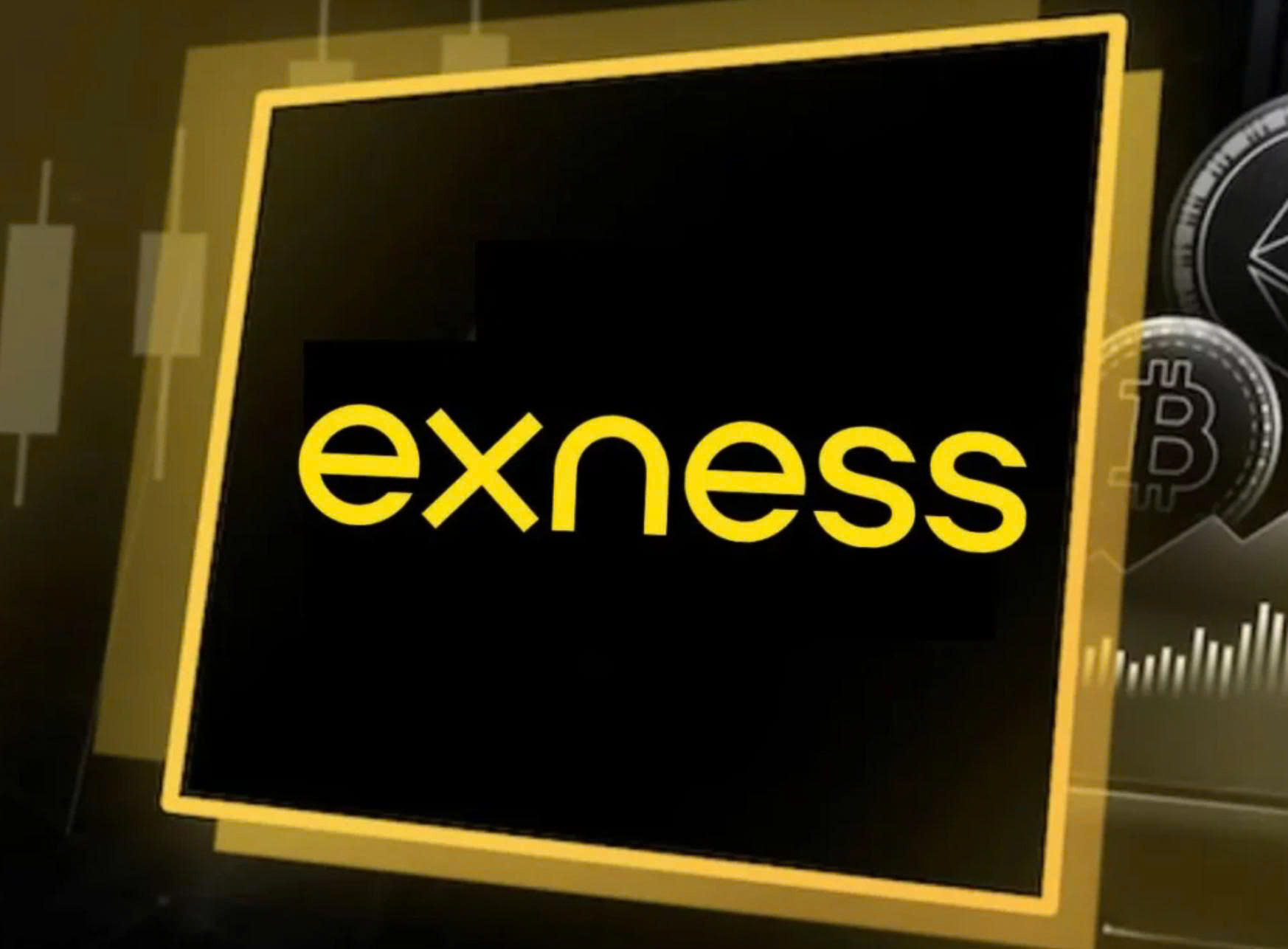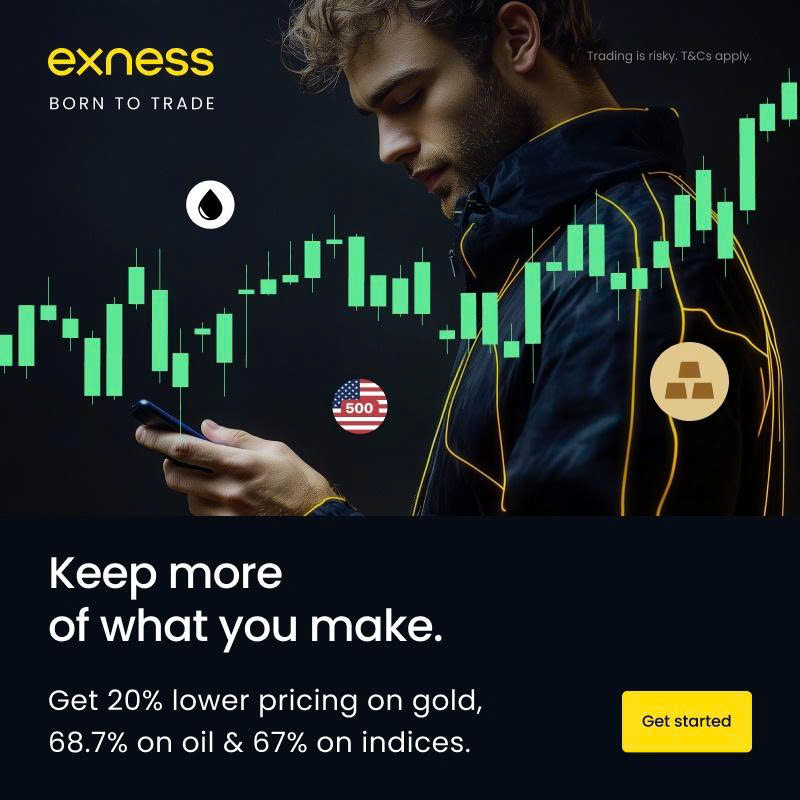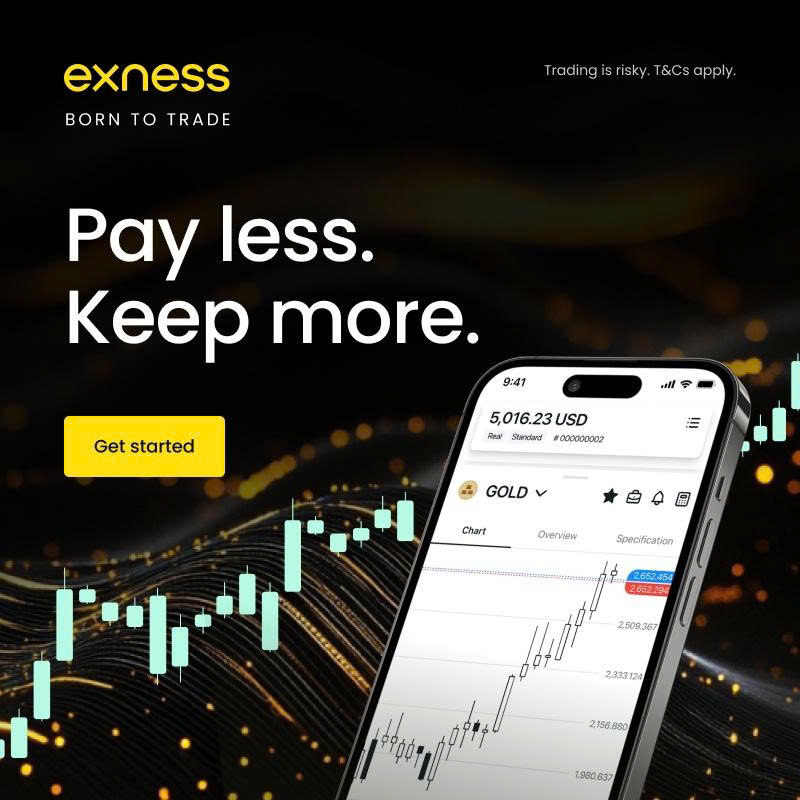
8 minute read
Does Exness Charge Commission? A Comprehensive Guide to Exness Fees
When choosing a forex broker, one of the most critical factors traders consider is the cost of trading. Among these costs, commissions play a significant role in determining overall profitability. Exness, a globally recognized forex and CFD broker founded in 2008, is known for its competitive trading conditions, tight spreads, and diverse account types. But a common question arises: Does Exness charge commission? In this in-depth guide, we’ll explore Exness’s commission structure, compare it with other brokers, and break down everything you need to know about its fees. Whether you’re a beginner or an experienced trader, this article will help you make an informed decision about trading with Exness in 2025.

✅ Join Exness now! Open An Account or Visit Brokers 👈
Understanding Exness: A Trusted Forex Broker
Before diving into the commission details, let’s briefly introduce Exness. Established in 2008, Exness has grown into one of the leading online trading platforms, serving over a million traders worldwide. Headquartered in Cyprus, the broker operates under multiple regulatory bodies, including the Financial Conduct Authority (FCA) in the UK, the Cyprus Securities and Exchange Commission (CySEC), and the Financial Sector Conduct Authority (FSCA) in South Africa. This multi-regulatory framework ensures a high level of trust and transparency, making Exness a reliable choice for traders globally.
Exness offers a wide range of trading instruments, including forex pairs, commodities, stocks, indices, and cryptocurrencies. Known for its tight spreads, fast execution speeds, and flexible account types, Exness caters to traders of all experience levels. But how does its commission structure fit into this picture? Let’s find out.
Does Exness Charge Commission?
The short answer is: It depends on the account type. Exness offers a variety of account types, each with its own fee structure, including commissions and spreads. To fully understand whether Exness charges commission, we need to explore the two primary types of trading fees: commissions and spreads.
Commissions: These are fixed fees charged by brokers per trade or per lot traded. Some brokers charge commissions to offer tighter spreads, while others rely solely on spreads for revenue.
Spreads: The spread is the difference between the bid (sell) and ask (buy) price of an asset. It’s a cost embedded in every trade and varies based on market conditions, account type, and the broker’s pricing model.
Exness uses both models, depending on the account type you choose. This flexibility allows traders to select an account that aligns with their trading style and cost preferences. Let’s break down the commission structure for each account type.
Exness Account Types and Their Commission Structures
Exness offers five main account types, divided into two categories: Standard Accounts and Professional Accounts. Each has a unique fee structure, balancing commissions and spreads to suit different trading strategies.
Standard Accounts
Standard accounts are designed for beginners and casual traders who prefer simplicity and low entry barriers.
Standard Account
Commission: No commission is charged.
Spreads: Starting from 0.3 pips (variable).
Minimum Deposit: $10 (varies by region).
Trading Instruments: Over 120 options, including forex, metals, and cryptocurrencies.
The Standard Account operates on a spread-only model, meaning Exness earns its revenue through the spread rather than charging a separate commission. This makes it an attractive option for traders who want to avoid additional fees.
Standard Cent Account
Commission: No commission.
Spreads: Starting from 0.3 pips (variable).
Minimum Deposit: $10 (varies by region).
Trading Instruments: Limited to forex and metals, with cent-based lot sizes.
Similar to the Standard Account, the Standard Cent Account is commission-free and ideal for new traders testing strategies with smaller volumes. The absence of commissions keeps costs predictable, though spreads may be slightly wider than professional accounts.
Professional Accounts
Professional accounts are tailored for experienced traders, offering tighter spreads and advanced trading conditions, often with commissions.
Pro Account
Commission: No commission.
Spreads: Starting from 0.1 pips.
Minimum Deposit: $200 (varies by region).
Trading Instruments: Wide range, including forex, commodities, indices, and cryptocurrencies.
The Pro Account is commission-free, making it ideal for traders who prioritize low spreads without additional fees. It’s suitable for scalping, day trading, and algorithmic strategies due to its competitive spreads and fast execution.
Raw Spread Account
Commission: Up to $3.50 per lot per direction (total $7 per lot for open and close).
Spreads: Starting from 0.0 pips.
Minimum Deposit: $500 (varies by region).
Trading Instruments: Extensive range across all asset classes.
The Raw Spread Account charges a commission but offers ultra-tight spreads, often starting at 0.0 pips. The commission is based on trading volume and is charged when opening the position, covering both the open and close. For example, trading 1 lot of GBP/USD incurs a $7 commission ($3.50 per side).
Zero Account
Commission: Starts at $0.05 per lot per side, varying by instrument (e.g., $9 for GBP/USD).
Spreads: 0.0 pips on the top 30 instruments.
Minimum Deposit: $500 (varies by region).
Trading Instruments: Focused on major instruments with zero spreads.
The Zero Account is designed for high-volume traders, offering zero spreads on select instruments but with a commission that varies by asset. For instance, trading 1 lot of GBP/USD incurs a $9 commission ($4.50 per side).

✅ Join Exness now! Open An Account or Visit Brokers 👈
Other Fees to Consider
In addition to commissions and spreads, Exness may charge other fees that traders should be aware of:
Swap Fees: These are overnight fees for holding positions past the market close. Exness offers swap-free trading on many instruments, particularly for Standard and Standard Cent accounts, making it appealing for long-term traders.
Currency Conversion Fees: If your account currency differs from the traded asset’s quote currency, a conversion fee may apply. These fees are generally low but depend on the payment method.
Withdrawal Fees: Exness does not charge internal withdrawal fees for most methods, such as bank transfers, credit/debit cards, and e-wallets like Skrill and Neteller. However, third-party providers may impose their own fees.
Inactivity Fees: Unlike some brokers, Exness does not charge inactivity fees, making it a cost-effective choice for traders who trade sporadically.
How Exness Compares to Other Brokers
Exness’s commission structure is competitive compared to other leading brokers. For instance:
Commission-Free Accounts: Exness’s Standard, Standard Cent, and Pro accounts are commission-free, relying solely on spreads. This is similar to brokers like XM or FBS, which also offer spread-only accounts for beginners.
Commission-Based Accounts: The Raw Spread and Zero accounts charge commissions but offer tighter spreads than competitors like IC Markets or Pepperstone, which may charge higher commissions for similar spread levels.
Non-Trading Fees: Exness stands out by not charging inactivity, deposit, or withdrawal fees (except for third-party charges), unlike some brokers that impose monthly maintenance or inactivity fees.
Exness’s transparency in fee structures, combined with its low-cost trading conditions, makes it a strong contender in the forex market.
Tips to Minimize Trading Costs with Exness
To optimize your trading costs with Exness, consider the following strategies:
Choose the Right Account Type: Select an account that matches your trading style. For short-term traders or scalpers, the Raw Spread or Zero accounts offer low spreads with manageable commissions. For long-term traders, the Standard or Pro accounts avoid commissions entirely.
Join the Exness Rebate Program: Exness offers a rebate program through its Introducing Broker (IB) partners, which can refund up to 90% of commissions on certain accounts, significantly reducing costs.
Trade During Low-Volatility Periods: Commissions and spreads can fluctuate during high-volatility periods, such as major economic news releases. Trading during quieter market hours can help minimize costs.
Monitor Currency Conversion Fees: Use a base currency that aligns with your trading instruments to avoid conversion fees.
Leverage Swap-Free Options: For long-term traders, Exness’s swap-free trading on select instruments can eliminate overnight costs.
Is Exness’s Commission Structure Right for You?
Whether Exness’s commission structure suits you depends on your trading goals and style. If you’re a beginner or prefer simplicity, the commission-free Standard or Standard Cent accounts are excellent choices, offering predictable costs through spreads. For advanced traders, the Raw Spread and Zero accounts provide ultra-low spreads in exchange for reasonable commissions, ideal for high-frequency or high-volume trading.
Exness’s transparency, competitive spreads, and lack of inactivity or withdrawal fees make it a cost-effective broker for traders worldwide. By understanding its fee structure and selecting the right account type, you can optimize your trading costs and enhance profitability.
Conclusion
Exness offers a flexible and transparent commission structure tailored to various trading needs. While Standard and Pro accounts are commission-free, relying on spreads, the Raw Spread vs Zero accounts charge commissions for tighter spreads, catering to professional traders. With no inactivity or deposit fees and swap-free options on many instruments, Exness remains a top choice for cost-conscious traders in 2025. Before choosing an account, evaluate your trading strategy, volume, and cost preferences to ensure Exness aligns with your goals.
✅ Join Exness now! Open An Account or Visit Brokers 👈
Read more:

